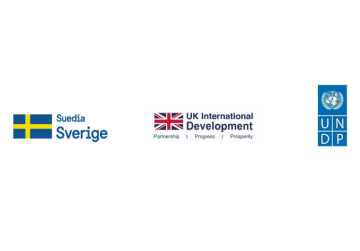
UNDP, Sweden and Great Britain will allocate $200 thousand each to 6 selected economic clusters from both banks of the Dniester River
In particular, 6 economic micro-clusters will be created and will be developed on both banks of the Dniester thanks to the support of Sweden and Great Britain under the UNDP project “Advanced Cross-River Capacities for Trade” (AdTrade). As the United Nations Development Program in Moldova notes, micro-clusters reflect the comparative advantages of the beneficiary regions, and sound economic specialization brings benefits such as efficiency, competitiveness and decent incomes. They contribute to strengthening the export potential of economic agents on both banks of the Dniester by promoting mutually beneficial cooperation and reintegrating value chains. The micro-clusters were selected on the basis of an economic convergence analysis, taking into account the presence of a critical mass of motivated entrepreneurs on both banks of the Dniester, their growth potential and the possibility of creating or improving jobs. In particular, the Fruit Export Hub micro-cluster brings together 15 economic agents from the micro-region of Soldanesti and Camenca with a production volume of about 10,000 tons of fruit. The aim of the cluster is to create a common center for export to the EU market, relying on the post-harvest infrastructure in Parcani village, Soldanesti district, and to ensure large volumes of homogeneous and quality products. The Moldova Textile Export micro-cluster includes 10 factories and workshops in the microregions of Rezina, Ribnita and Soldanesti. The aim of the microcluster is to support cooperation between economic agents from both banks of the Dniester River in order to overcome common problems. Cooperation within the cluster will allow taking larger orders and promoting joint marketing to identify new export markets. At the same time, the tourist micro-cluster “Dniester Riviera” (Riviera Nistrului) includes 24 economic agents from neighboring settlements of the Dubasari reservoir, traditionally known as the “Sea of Moldova” and the largest water body in Moldova. The aim of this cluster is to strengthen cooperation and integration of all economic agents specializing in tourism and recreation on both banks of the Dniester. In the future, economic agents from both banks of the Dniester intend to create a joint organization to manage tourist destinations and develop joint tourist routes to promote and strengthen the “Dniester Riviera” as a tourist destination. The fourth micro-cluster in the field of table grapes includes 13 economic agents from the micro-region of Stefan-Voda, Causeni, Slobozia and Grigoriopol. The aim of this cluster is to create a common export center for table grapes, located in Popeasca village, Stefan-Voda district, based on the development of infrastructure for post-harvest processing, storage, packaging and export in accordance with European standards. Economic agents from both sides want to cooperate to ensure direct sales, eliminate intermediaries and facilitate access to the main agri-food traders in the European Union. The fifth micro-cluster in the field of vegetable production in the Lower Dniester region is an initiative that brings together 12 economic agents traditionally specialized in vegetable production in the micro-region of Stefan-Voda, Slobozia, Grigoriopol and Causeni. The aim of this hub is to develop a common infrastructure for packaging and export, by combining production and forming more competitive offers, avoiding intermediaries and directly reaching European trading houses and retail chains. At the same time, the sixth micro-cluster in the beekeeping micro-region of Causeni, Slobozia, Grigoriopol and Basarabeasca includes 12 economic agents from both banks of the Dniester River, managing a total of more than 3,500 bee families. The aim of the cluster is to create a common beekeeping hub based on the existing infrastructure for processing beekeeping products in Zaim village of Causeni district and to develop a joint integrator for processing and exporting honey and beekeeping products for the mutual benefit of beekeepers from both banks of the Dniester River. Within the framework of the UNDP/AdTrade project, working groups for each cluster were formed, which included more than 80 entrepreneurs who signed agreements of commitment to cluster development. By the end of 2024, they will be officially institutionalized and each cluster will receive $200,000 to implement projects and initiatives that strengthen cooperation and economic development on both banks of the Dniester. UNDP, the EU and Switzerland are also supporting the development of 11 other economic clusters where smart specialization is driving local economic development. // 18.07.2024 - InfoMarket.







